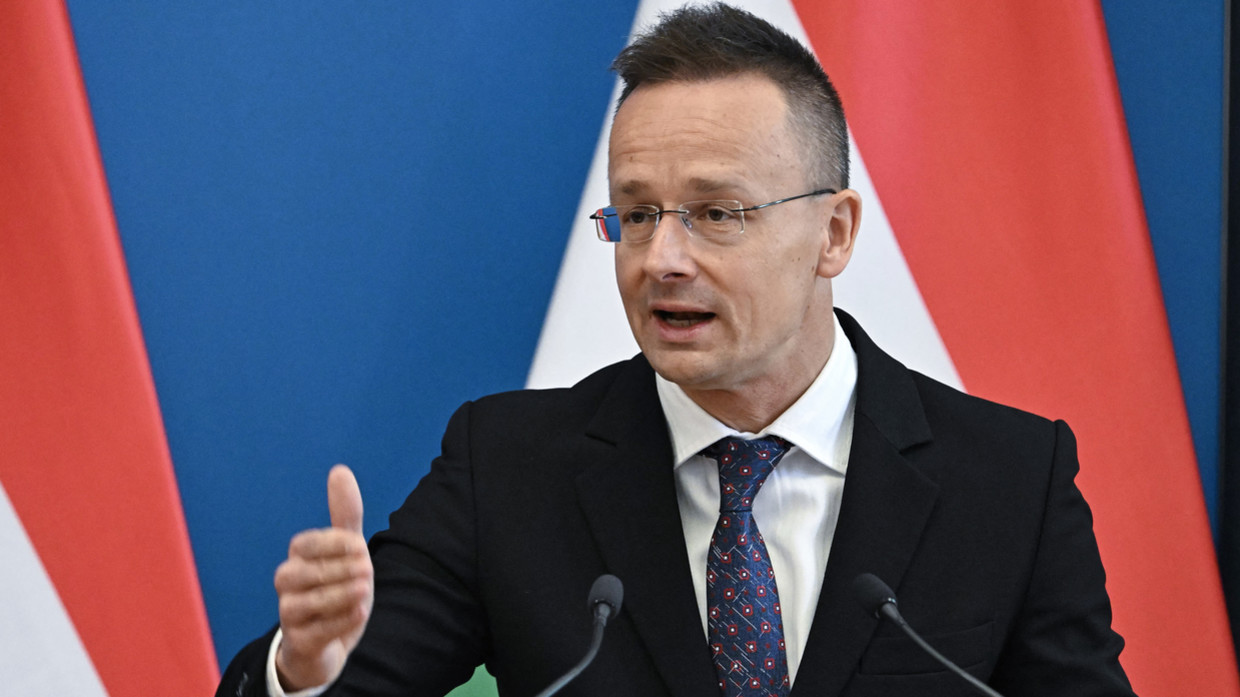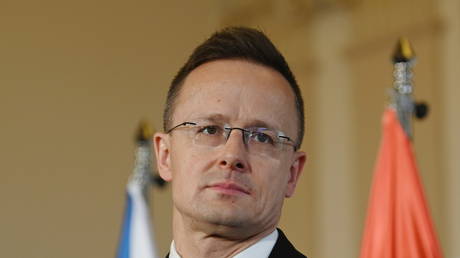The European Union’s proposed 14th package of Russia sanctions runs counter to Hungary’s national interests, and Budapest therefore will not support it, Foreign Minister Peter Szijjarto has said. The country will continue to block a €6.5 billion ($7 billion) military aid package for Ukraine, despite a “ruckus” caused by fellow EU foreign ministers, he said.
The senior diplomat made the remarks on Monday during a press conference in the aftermath of a ministerial meeting in Brussels.
“We continue to insist on the need to make peace, to stop the senseless killing, and to prevent the escalation of this war, so we have not and will not contribute to the release of another €6.5 billion to finance arms shipments to Ukraine,” the minister stated.
Szijjarto acknowledged having a “huge row” during the meeting but vowed to stand his ground in the future.
“There was a huge ruckus on this, as the German, Lithuanian, Irish, Polish, and other colleagues lashed out at me on this issue, but that couldn’t sway us in our position,” he revealed.
Speaking about the proposed sanctions against Russia, the diplomat confirmed Budapest is set to oppose it, over concerns about energy sector cooperation. Budapest works with Russia's nuclear agency Rosatom, on its Paks II nuclear power plant.
Some foreign ministers of EU member states have publicly expressed their exasperation with Hungary’s stance on the Ukrainian conflict and on the bloc’s efforts to prop up Kiev against Moscow. Ahead of the meeting, Lithuanian Foreign Minister Gabrielius Landsbergis urged the bloc to find a way to “work around” Budapest’s vetoes.
“We looked into this and apparently about 41% of resolutions by the EU on Ukraine have been blocked by Hungary,” he claimed.
“It has gone very, very far. We have to find a way, really, as a community to work around this,” Landsbergis added. It was not immediately clear how exactly the diplomat wanted to “work around” the Hungarian stance, given the fact that collective, EU-wide decisions such as imposing sanctions or allocating war chest money must be backed unanimously.
Belgian Foreign Minister Hadja Lahbib has also expressed dissatisfaction with Hungary, arguing the bloc “must absolutely assume our responsibilities and do what is necessary to help Ukraine militarily.”


